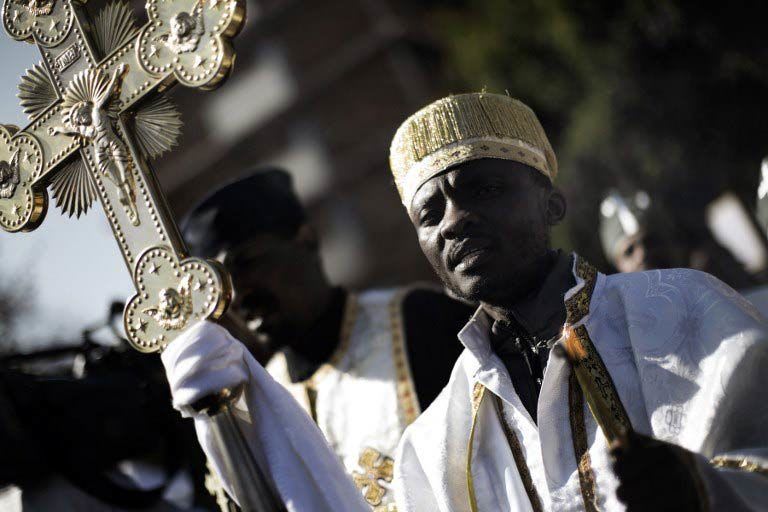Indigenous spirituality in Africa has lost its relevance and vitality owing to the domination of Islamic and Judeo-Christian beliefs. The latter belief systems were externally imposed on Africa via brutal military conquests and deception.
In the contemporary societies, where liberal democracies are underpinned by inalienable individual rights, it is regressive to force people to subscribe to a particular set of religious beliefs. People have the unfettered freedom to choose religious beliefs of their choice, and to exercise such without undue hindrance from the state.
But this argument rests on the Western concept of human rights, which dictates an unalterable system that must be used as the sole global template for “civilization”. This Western system of human rights, which viewed the white propertied male individual as the single standard for universal rationality, is in many ways intrusive in the indigenous knowledge systems of African societies. Even where one asserts that each individual has the right to choose their religious belief system as per Western templates of “human rights” and “civilization”, questions around identity, belonging, and fulfilment are inescapable.
For the most part, the innate understanding of Islamic and Judeo-Christian religious beliefs by Africans is questionable. And this largely relates to the specific strands of Christianity that Africa finds itself with. The truism of Christianity being exploited as a colonial tool for imperial domination is lost on many sections of African populations. But perhaps the reason why it is easy to be identified with Christianity is because of its perceived notions of “civility” as well as “success” and “education”.
Arguably, the swift European colonization of the African continent as crystallized by the Berlin Conference of 1884-85 would have been impossible without the insidious role played by Christian missionaries. Christianity was used to pacify African resistance – ably coupled by the gun. Christian missionaries established mission centers providing Western education and health, effectively erasing the intrinsic indigenous knowledge systems that constituted African identity for centuries. Everything African was immediately incorrigible – African civilization was deemed paganistic, barbaric, backward, and in urgent need of saving.
Colonialism was put in place with the goals of “enlightening” Africa via the spread of Commerce, Civilization, and Christianity. This template applies less to Islam but common elements perceiving African customs and beliefs as unsuitable for human progress are to be found. King Leopold II of Belgium, who callously owned present-day Democratic Republic of Congo as his personal property, sent a letter to missionaries instructing them to wipe away all African spirituality and supplant it with Christian. He told them to take away the Africans’ identity and pacify them into docile passivity that would make the exploitation of natural resources for profits an easy process.
Through the process of colonial domination, Africans viewed their spirituality as lacking in depth and salvation, barbaric, evil, and irredeemably primitive. African indigenous religions lacked any soulful sense whatsoever. This is what Africans internalized in their collective psyche, and this is what still obtains. Christianity taught the Africans to hate themselves. The African mind was thus totally colonized – a massive “brain operation”, a term employed by the late Zimbabwean literary iconoclast Dambudzo Marechera. The same applies to Islam. It shuns the supremacy of African indigenous spirituality. As such, it is clear that Christianity was used as a colonial tool in Africa, thus legitimizing the brutal capitalist systems that cause untold poverty and inequality today.
African indigenous spirituality remains an indispensable aspect of African morality – African religions shun voracious individualism and greed, and aim towards achieving a holistic society in which the individual good must translate into public good, and public good must translate into individual good. Christianity today now reflects a neocolonial outlook where it preaches the rapacious message of “gospel entrepreneurship” underpinned by a desire for individual materialist wealth and success – Christianity effectively abets neoliberal capitalism.
But Christianity did not totally portend doom for Africa – during colonial struggles for independence strands of liberatory theology were commonplace. And these played vital roles in achieving political independence (not so much economic independence because Christian churches in Africa own vast swathes of private property without significantly contributing to the national fiscus). For example, in Zimbabwe there was Abel Muzorewa, and in South Africa there was Desmond Tutu.
It however remains a concrete historical fact that religion was effectively used to colonize Africa and erase African identity. In today’s contexts, religion must be used as a tool to speak truth to power – whether this is done via African traditional religions, Islam, or Judeo-Christianity.
Leave a Comment
Sign in or become a Africa Rebirth member to join the conversation.
Just enter your email below to get a log in link.


Related News
Congo’s Unfinished Revolution: Patrice Lumumba and the Struggle for Sovereignty
Jun 01, 2025
How Ancient Mombasa Became the Gateway of African Commerce
May 31, 2025
How Mozambique Broke Free from 500 Years of Portuguese Rule
May 30, 2025